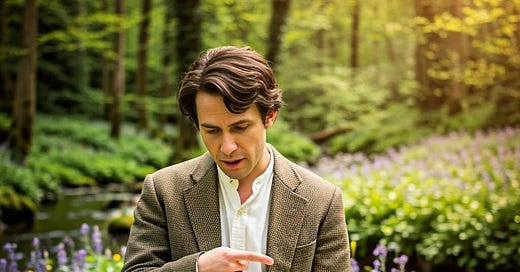Imitation hinders authentic self-expression. Trying to replicate another poet's voice is like "trying to breathe through someone else's lungs". It might work for a while, but it will never be natural.
Finding your unique voice is a journey of self-discovery. There is no magic formula or app that will reveal your voice.
To start finding your voice, stop imitating others. Acknowledge your influences, but then do everything you can to avoid sounding like them. Don't deliberately do the opposite of what you've learned, but rather take what you've learned and make it your own.
Look Inward: Write about what genuinely moves you and what makes you angry. Your most authentic voice will come from genuine emotions.
Experiment with Style: Try different styles, mixing free verse with sonnets, or prose poems. Even the "bad stuff" can lead you to something better. If you're a rhyming poet, try abandoning rhyme for a while; if you're a prose poet, explore the challenges of structure.
Listen to Your Natural Rhythm: Pay attention to how your thoughts flow. This rhythm is a fundamental aspect of your writing. Let your natural rhythm come through, regardless of the form or style you use.
Be Okay with Mess: Your first drafts might be messy, and that's okay. The process is more important than the immediate results. Your authentic voice will emerge over time.
The world needs original voices, not copies. Readers want to hear your unique perspective, with all of its "flaws and quirks".
Write without fear of messing up and without shame.
FAQ on Finding Your Poetic Voice
1. Why is imitating other poets detrimental to finding my own voice?
Imitating other poets can feel like trying to breathe through someone else’s lungs; it may sort of work, but it will never be natural or authentic. While initially appealing and possibly yielding some positive feedback, imitation prevents the development of a unique, personal style, limiting a poet’s genuine self-expression. Authentic voice stems from unique experiences and feelings, which cannot be replicated by copying another’s style.
2. If imitation doesn’t work, what is the first step towards finding my voice as a poet?
The first step is to stop imitating. Acknowledge the poets who influence you, then deliberately focus on not sounding like them. Read widely to absorb diverse styles and ideas, but instead of replicating them, allow these influences to filter through your unique perspective and experiences. This step involves embracing originality, rather than trying to replicate another’s style or technique.
3. How important is self-reflection in the process of finding my poetic voice?
Self-reflection is crucial. Identifying what truly interests, moves, or angers you will give you a starting point that is uniquely yours. Genuine emotions, not the ones you think you should be having, are the source of your most authentic voice. By exploring your inner landscape, you will find themes and subjects that resonate deeply, which will ultimately inform your writing.
4. Should I stick to the poetic styles I am comfortable with, or experiment with new ones?
Experimentation is key. Try different poetic forms, mix free verse with sonnets, or explore prose poetry if that is not your typical mode. Stepping out of your comfort zone and trying things that are not your usual way of writing will provide avenues to new perspectives and styles. Even if some experiments feel unsuccessful, the process will expand your toolkit.
5. What does "listening to your natural rhythm" mean in the context of poetry?
Listening to your natural rhythm means paying attention to the way your thoughts naturally flow. Your rhythm is a core characteristic of your unique writing style and should come through, regardless of the form or style that you choose. You should not force your natural rhythm, but instead, ensure that it comes out in the poems you are writing.
6. Why is it okay to have messy or flawed first drafts when looking for my voice?
It's perfectly fine for your initial drafts to be messy. The process is more important than the immediate result. Finding your authentic voice is a journey of self-discovery that evolves over time, and the flaws in your drafts are part of the process. These messy drafts allow you to explore ideas and techniques, which will ultimately pave the path for your unique voice to emerge.
7. What's the benefit of originality in poetry? Why is it so important?
Originality in poetry is essential because the world doesn't need more copies of already established styles. It needs authentic and unique voices. Readers are drawn to writers who speak from a genuine and personal perspective. Readers want to experience what only you can provide, rather than the echoes of others’ work.
8. How should I approach the process of developing my poetic voice?
Approach the process with a mindset free from fear and shame. Embrace the potential for mistakes, and be bold in your explorations. Trust in the process of self-discovery and the idea that your unique voice will reveal itself over time through consistent practice and reflection. Writing without fear of messing up and without shame is key to finding an authentic voice.










Share this post